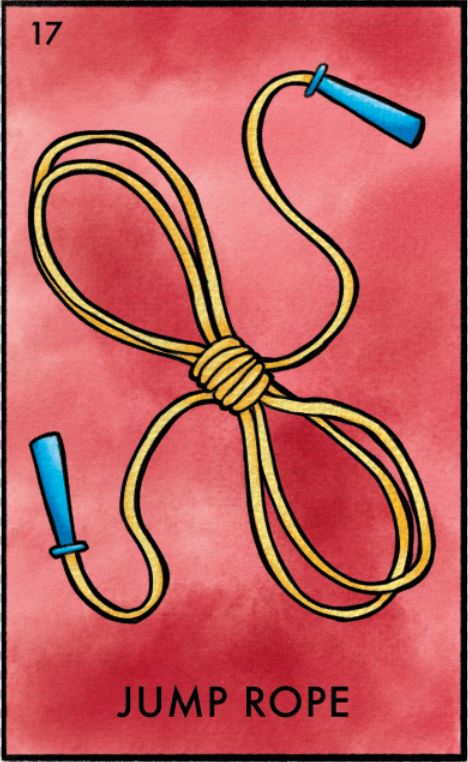Take Your Pick
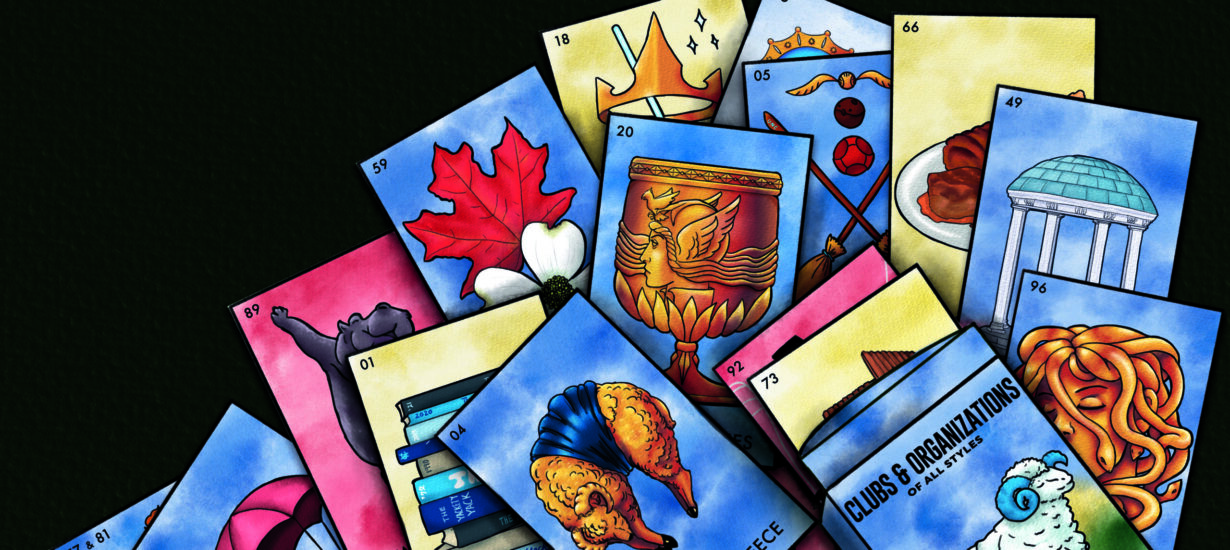
Secret societies. Quaestors and scriptors. The Parachute Club. Spend just a few minutes reading the Review’s Class Notes, and you’ll find dozens of clubs and organizations Carolina alumni have been members of.
Some are familiar, some, not so much. Well-known or enigmatic, clubs are an essential part of college life. They’re where students establish lifelong friendships, find fellowship, have fun and possibly discover new interests. At Carolina there are hundreds of active student organizations and clubs. Groups include nationally recognized organizations, including fraternities and sororities, and those exclusive to UNC — even some that are secret.
Were you a member of a semi-secret society of campus squirrel watchers or some similarly quirky club? (Or maybe you were, but you’re not allowed to tell us?) Did we miss a club that you’ve always wondered about? We’d love to hear
from you.
by Cameron Hayes Fardy ’23
illustrations by Haley Hodges ’19
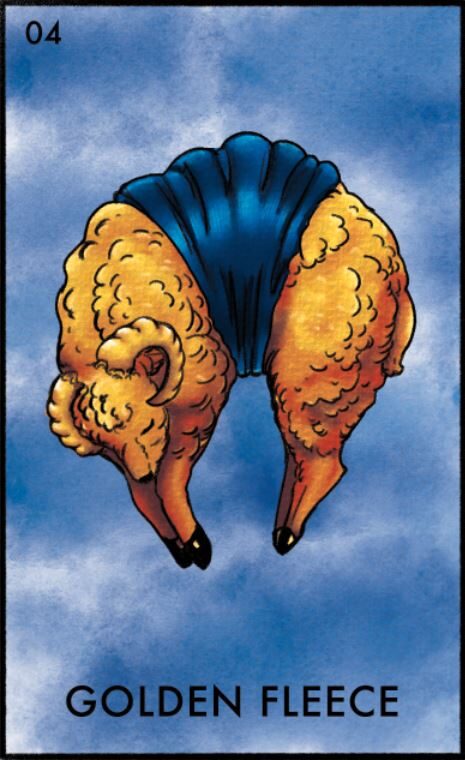
Order of the Golden Fleece
Formed in 1904, this order is the oldest and highest honorary society at UNC. The organization bases its rituals, officer positions and terminology on the Greek myth of Jason and the Golden Fleece.
The group selects members, called argonauts, based on service to the University that reflects scholarship, motivation, creativity, loyalty and leadership in academic and extracurricular activities. The organization strives to encourage students beyond their academic pursuits. Most inductees are seniors. “The organization reflects those who embody the spirit of being a Tar Heel and carry that mission forward,” said Darrin Poole ’88, who joined the order as a senior. “The Fleece also expects that same commitment beyond your time at Carolina.”
Poole reflected on one of the more enlightening moments of his membership: a journey around campus that lasted from midnight to 6 a.m., during which new inductees reflected on what it means to be an argonaut.
“At the end [of the journey] we would sit on a wall looking east and watch the sunrise,” he said. “It was the first time in my life I was sitting in complete darkness and watched the light come. It really embodied the saying, ‘All things that are dark become anew.’ ”
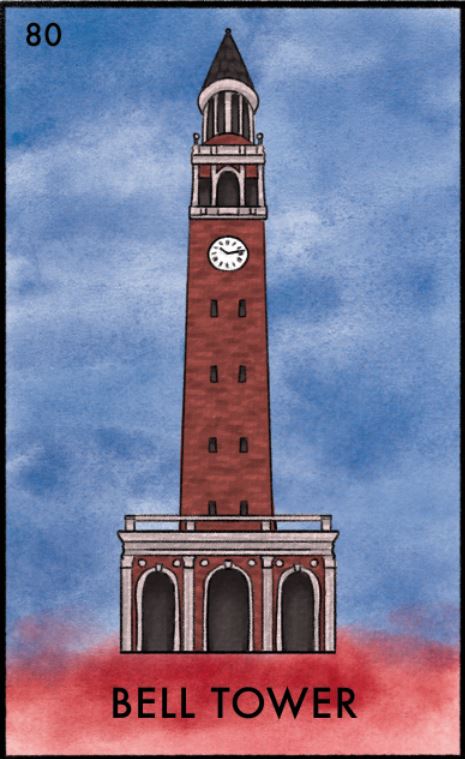
Order of the Bell Tower
Easily recognized by their Carolina blue blazers, Order of the Bell Tower members serve as the official keepers of University traditions, such as the Senior Bell Tower Climb, during which students climb the 256 steps to reach the top, and honoring UNC’s first student, Hinton James, on Hinton James Day, Feb. 12.
Founded in 1980, OBT is sponsored by Carolina Alumni to strengthen the relationship between students and alumni. The group strives to connect students, prospective students and alumni through services and programs such as Homecoming week meetups and events, University Day programming and promoting the tradition of class rings.
Since their recognition as official University ambassadors in 1982, OBT members have served at chancellor receptions, luncheons and other campus events. Kedrick Perry ’04 joined the order his junior year, giving him the opportunity to work with students from different backgrounds while also creating a network of contacts. “It allowed me to learn the legacy of some of our notable alumni and allowed me to meet significant people, such as politicians,” he said.
Perry said OBT gives members a chance to try something new and challenges them to leave their comfort zones. “I remember one time my peers and I went on a retreat to a cabin off campus as a bonding event,” he said. “I remember having bonfires every night. It really was a unique experience, as it was my first time staying in a cabin.”
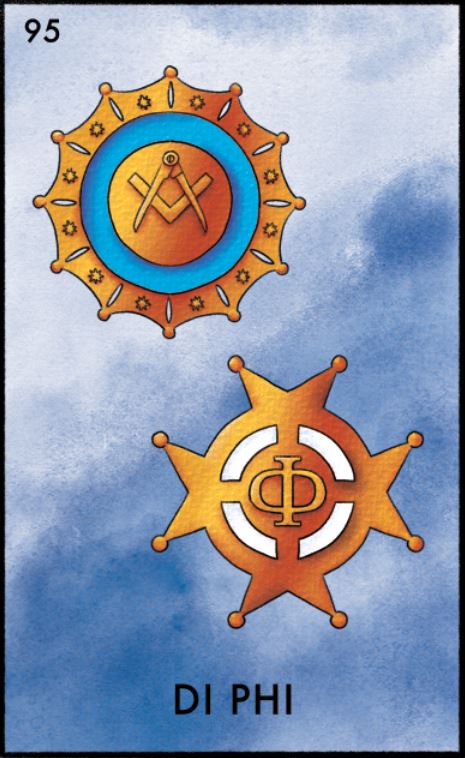
Di Phi Societies
UNC and Duke may be The Greatest Rivalry on Earth, but did you know another heated rivalry plays out on campus? The Dialectic and Philanthropic Societies, also known as Di Phi, are debate groups and among the oldest organizations on campus. Founded in 1795, the year UNC held its first classes, these societies viciously competed for members. Later the groups agreed to split prospective members geographically: Those hailing from west of Raleigh would join the Dialectic Society and those east of the capital would join the Philanthropic.
In the early days of the University, the debates of Di Phi were held for entertainment, and the societies fined students for bad behavior. The groups purchased books, eventually assembling libraries that were three times the size of the University’s library in 1850. From 1885 to 1895, the UNC Board of Trustees required all students to join one of the two groups to promote student self-governance.
In 1930, the societies began to admit women and in 1959 voted to merge. Today, the Di Phi Societies engage in debates on controversial issues and meet on the top floor of New West. Although membership has dwindled, students continue to be interested in debate and the University’s oldest organization.
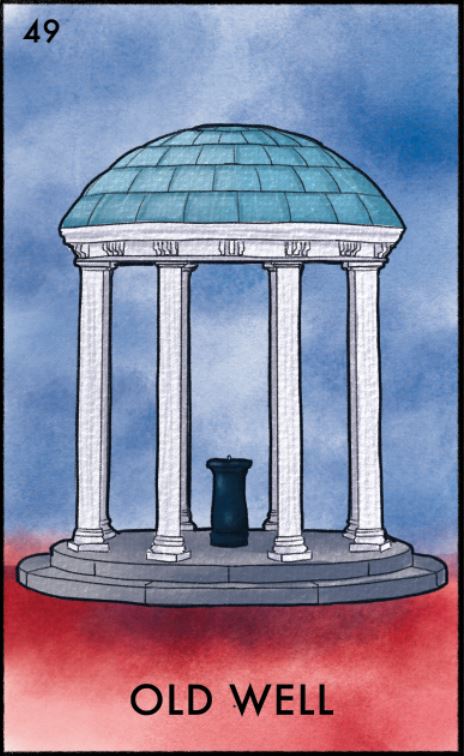
Order of the Old Well
This is another organization that many have heard of but don’t know exactly what its members do. The Old Well is arguably the most recognized landmark on campus and, in recent years, the “magical source” of a 4.0 semester for those who sip from it on the first day of class.
The organization was founded in 1949 by a group of faculty and students under the guidance of mathematics professor and Dean of Students Ernest Mackie (class of 1917) to recognize students who lead selflessly and participate in service work. The original order members were selected from interviews, that were open to all students and conducted in Steele Building. Today, students are still evaluated based on self-help, work, scholarship, honors and more.
Members of The Order of the Old Well typically are generous people who enjoy serving others and have not previously been recognized for their commitment. To become a member, candidates should not have been previously honored for their service by other campus organizations and may not be in highly public or well-recognized leadership positions.
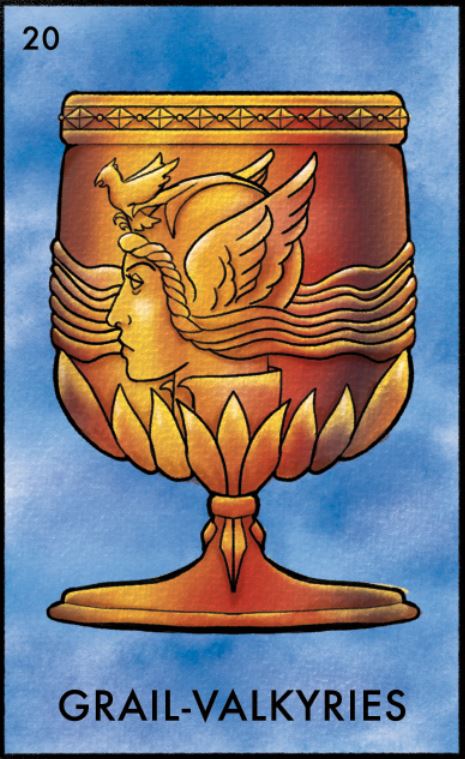
Order of the Grail-Valkyries
Order of the Grail, established in 1920, was formed to bring together men who were members of fraternities and those who weren’t. The grail, a symbol of the organization, is a cup with significant importance in Greek, Roman and Celtic mythology. Ever heard someone call something a “Holy Grail?” The grail symbolizes importance and power.
The Valkyries, formed in 1941, was established with a similar goal: to bring together sorority and non-sorority women. Valkyries are a symbol of powerful and fierce women, and the organization was one of the first on campus to recognize the outstanding achievements of female students.
In 1976, the two groups merged to form the Order of the Grail-Valkyries. The honorary group recognizes students with outstanding character and academic achievement. In the past, the group held dances for the campus community with proceeds supporting scholarships for members.
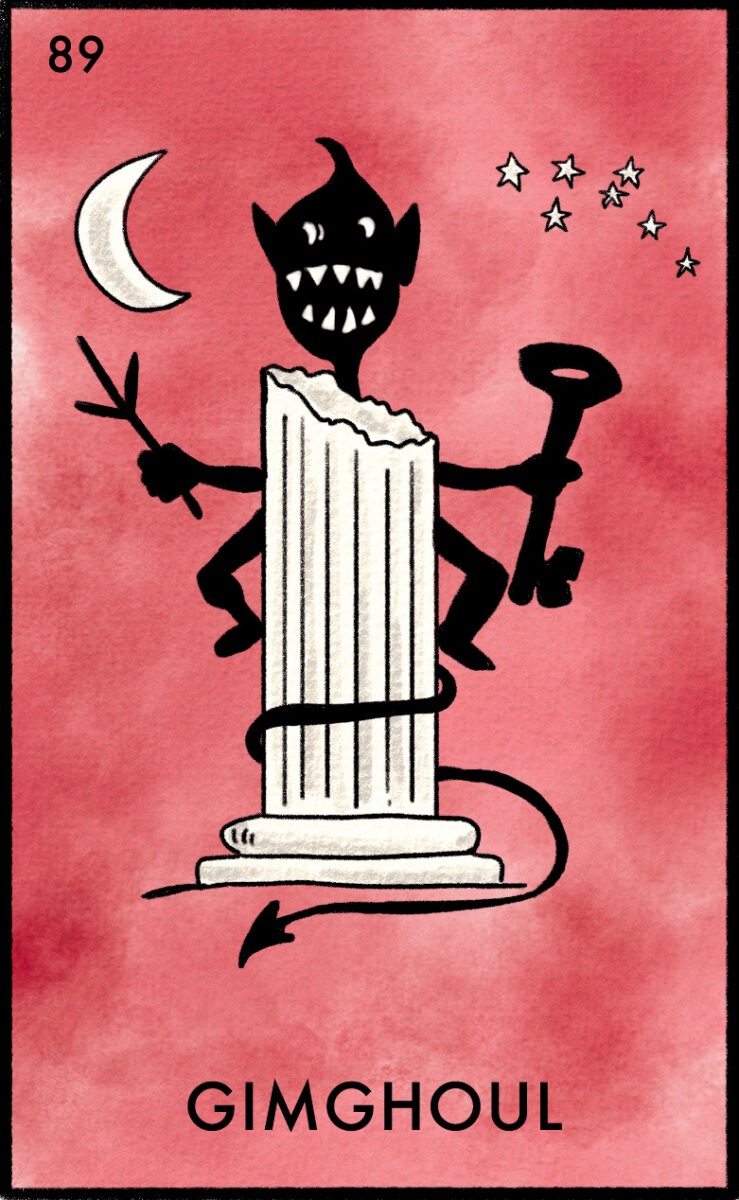
Order of the Gimghoul
This is one organization most alumni are familiar with, but the ghoulish origins of this secret society, founded in 1889, may be less known. It began as Order of the Dromgoole, named after a student, Peter Dromgoole (class of 1834), who disappeared from campus in spring 1833.
Dromgoole’s disappearance is believed to be centered around his love for a Chapel Hill woman known as Miss Fanny. Many believe that Dromgoole was slain in a duel to win her hand. The duel is said to have taken place at Point Prospect or Piney Prospect just outside Chapel Hill, and Dromgoole was buried under a boulder. Dark stains on the rock are reputed to be his blood, and it has not washed away with the passage of time. Stories of Miss Fanny’s fate vary. Some say she died of sorrow after visiting Dromgoole’s grave every night, while others say she held his head in her arms as he died — myths that are not mutually exclusive.
In the 1920s, Order of the Gimghoul members purchased land in Battle Park near the Forest Theater to build Hippol Castle, commonly referred to as the Gimghoul Castle, where members meet. A rather spooky stone structure covered in no trespassing signs binds the secrets of the order in its walls. Word has it that Dromgoole haunts the area.
The Order of the Gimghoul is open only to male students who are rising juniors and seniors, and to male faculty. Notable members include George Watts Hill (class of 1922), the namesake of Carolina’s alumni center; Robert Ervin Coker (class of 1896, MS 1897), a former professor of zoology and founder of the Institute of Fisheries Research in Morehead City; and Dudley DeWitt Carroll ’65, after whom Carroll Hall is named. No list of current members is posted, but years ago, the Yackety Yack listed members in each volume. Unfortunately, the yearbook is no longer published, shrouding the order in deeper mystery.
Most of the order’s members the Review contacted didn’t respond to emails. Those who did simply wrote “No comment.” The whole secrecy thing is obviously taken seriously.
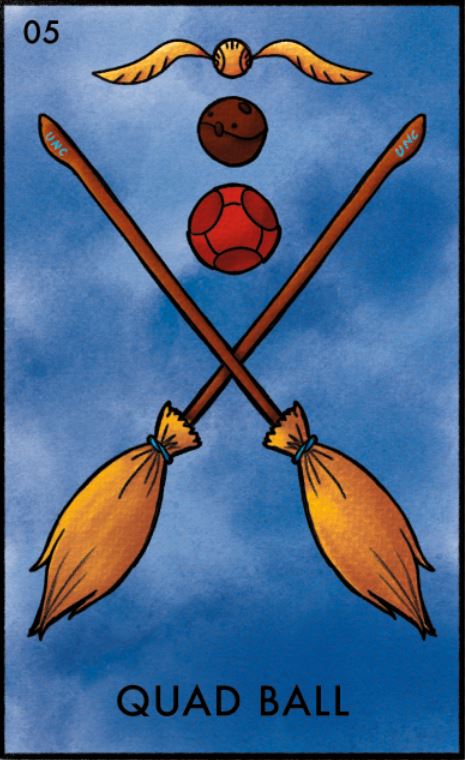
UNC Quidditch/Quad Ball
Broomsticks, Bludgers and the Golden Snitch? UNC Quad Ball, formerly known as Quidditch, is a high-intensity, gender-inclusive, full-contact sport that takes inspiration from the popular game in the Harry Potter novel series. Unfortunately, these brooms can’t fly.
The sport was created in 2005 at Middleberry College, and UNC’s first team began competing in 2011. UNC’s squad typically competes in two to three tournaments a year and welcomes players of all skill levels. The team changed names in 2022 following controversy surrounding Harry Potter author J.K. Rowling’s comments concerning transgender issues.
Seven players on each team try to outscore his or her opponent by shooting a partially deflated volleyball through one of three opposition hoops. Other team members defend their hoops by tackling and using dodgeballs to simulate the “bludgers” that knock players off their “broom” (a PVC pipe). If knocked off, a player must leave the game, go to a safe zone and remount their pipe, er, broom. To end the game, a “seeker” must catch the snitch — a tennis ball attached to an unaffiliated player.
Sam Doughton ’19 said playing Quidditch was always in the back of his mind when he was considering where to attend college. “When I got to Carolina, it was the first booth I went to at Fall Fest,” he said. “One of the best parts of the club was the social connections we built as teammates. We were with each other every weekend, whether it was going to Rams Dining Hall late night or staying up until 2 a.m. at someone’s apartment just talking about life.”
Doughton, who now works in Murfreesboro, Tennessee, as a staff writer with Middle Tennessee State University Athletics, served as a captain, treasurer and Quad Ball referee. “The sport taught me a lot about leadership,” he said. “I was able to meet many unique individuals from around the world and learn so much from them.”
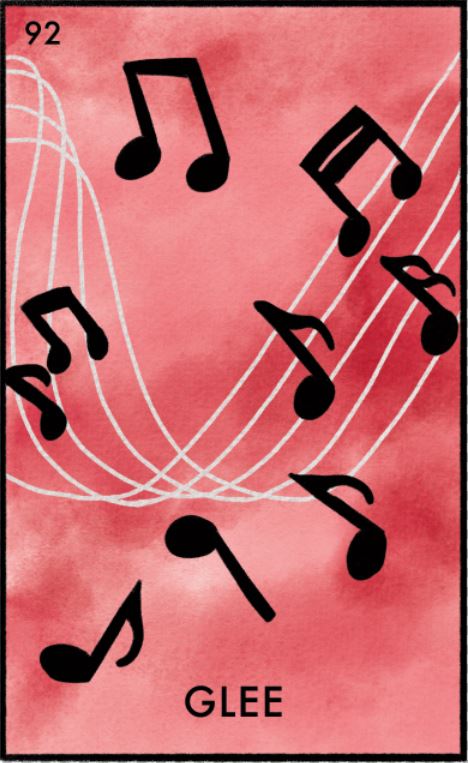
Glee Club (Men’s and Women’s)
“Hark the sound of Tar Heel voices, ringing clear and true.” The Men’s Glee Club sang those lyrics for the first time in 1897. The club was founded in 1892, and today they perform for audiences worldwide. The group was the first to perform “The Old North State,” which would later become North Carolina’s state song, and in 1966 the group made an appearance on The Ed Sullivan Show.
The Women’s Glee Club formed in 1934 and also performs worldwide, singing original and cover songs. As part of its stated mission, the women’s club promotes choral excellence and friendship among its members. Both the men’s and women’s glee clubs remain active on campus and are now overseen by the music department.
“During my time at glee, I was a super shy human,” said Lachi ’05, who is a singer-songwriter in New York City. “A hard lesson I learned during my time at glee was the importance of self-advocacy. I remember performing on a few solos and not being named as the soloist in the program. These were among my first instances of speaking up, advocating and embracing self-worth.”

Toronto Exchange
This group, founded in 1959, stands proudly as one of UNC’s earliest exchange programs. Picture this: Carolina students venturing north to the University of Toronto, while their Canadian counterparts bask in the southern warmth of Chapel Hill.
The club became popular in the 1980s, with more than 40 students from each school participating in the program. However, as more study abroad programs emerged, the organization attracted less interest. Student government cut funding for the program in 1992.
Martha “Marty” Shore Edwards ’74 said during her time in the program she learned about the Group of Seven, a collection of Canadian landscape painters active from 1920 to 1933. She also visited the McMichael Canadian Art Collection and went ice skating at the City Hall skating rink, a quintessential Torontonian experience.
When students from the University of Toronto came to Chapel Hill, Edwards said they attended an African American church in Fuquay-Varina and had lunch with members of the congregation.
Carolina Jump Rope
This group is exactly what it says it is. Carolina Jump Rope participates in performances, competitions and community service events while redefining the art of jump rope with their dazzling spins and flips. Graham Booth ’20 and Noah Mancuso ’19 founded the group in 2017 to give students who had competed in elite jump rope competitions during their childhood a chance to continue the sport in college.
The team has about 20 members whose talent ranges from novice to experienced. Tryouts are open to anyone, and open gyms are held throughout the year to teach any interested student the basics of jump rope.
The team performs on campus year-round and competes at the National Collegiate Jump Rope Summit each spring. They have won several national championships in freestyle and speed jumping events. “Practices are always fun and lively,” said Erin Schlachter, a senior and club president. “It is so fun to see everyone get so excited for one another, and so gratifying as president to see people who just started jumping six months prior competing a full-length routine.”
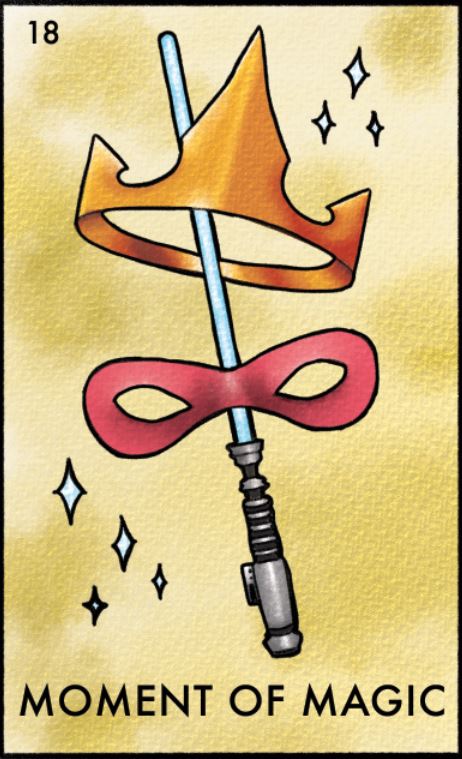
A Moment of Magic
A club that allows students to dress up like princesses, superheroes and even Star Wars characters would put a smile on any child’s face.
Founded in 2018, UNC’s A Moment of Magic is a chapter of a national volunteer organization that college students join to volunteer at children’s hospitals and social service institutions to support medically vulnerable and underserved children. Students audition to become character performers who visit children in the facilities, read stories and perform at special events that bring the characters to life.
“Every smile, every hug and every song meant a lot to the kids I met,” said Emma Whitaker, a senior and current president of AMoM UNC. “I immediately recognized that only a few people in Chapel Hill would ever have the opportunity to do this.”
Whitaker said that while she was volunteering for Duke Hospital’s 2022 Rainbow of Heroes Walk, a young girl grabbed her hand and refused to let go. “She told me she wanted me to come back soon so she could play games again with her favorite princess,” Whitaker said. “It was at that moment I realized that I had accomplished AMoM’s mission.”
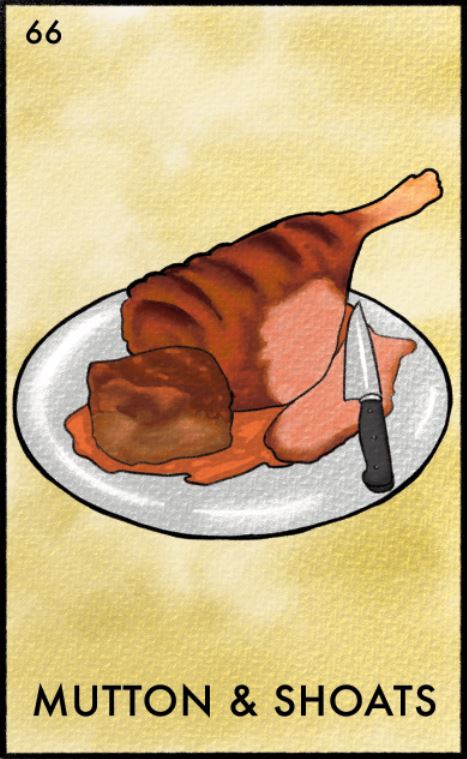
The Society for the Preservation of Buck Taylor’s Mutton and Shoats
Talk about a club name that’s a mouthful. This club was founded in 1966 as a dining and humor society. Many wrote it off as an excuse for young men to get together, eat, drink and tell jokes. Women weren’t allowed to join, or maybe they just weren’t interested.
The society is named after John “Buck” Taylor, who served as the first steward at UNC in the 1790s. Legend has it Taylor angrily left the University after students reacted unfavorably to his dish of mutton and shoat. (A shoat is a very young hog.) The society — nearly 200 years later — claimed Taylor’s dismissal was unjust and set out to restore his honor by holding joke-filled dinners. Members, according to the Yackety Yack, thought it absurd no Chapel Hill establishment offered what members considered a “proper multi-course French meal.” So, the society hired a chef, booked a private room at the Villa Tempesta (then an East Franklin Street restaurant) and enjoyed a five- to eight-course meal with multiple wines and brandy. Sometimes, possibly after a bit too much imbibing, dinners were followed by members piling into mule-drawn carts and traveling around town singing.
It’s believed there was an educational component to the society. The group invited UNC history professor Hugh Lefler to discuss what life was like at the University in the 18th century, according to a 1966 article in The Daily Tar Heel. Membership seemed limited to 20 men, and judging by the type of meals they had, the dues likely were costly. The group looks to have disbanded decades ago. The last time the society appeared in the Yackety Yack was in 1979.
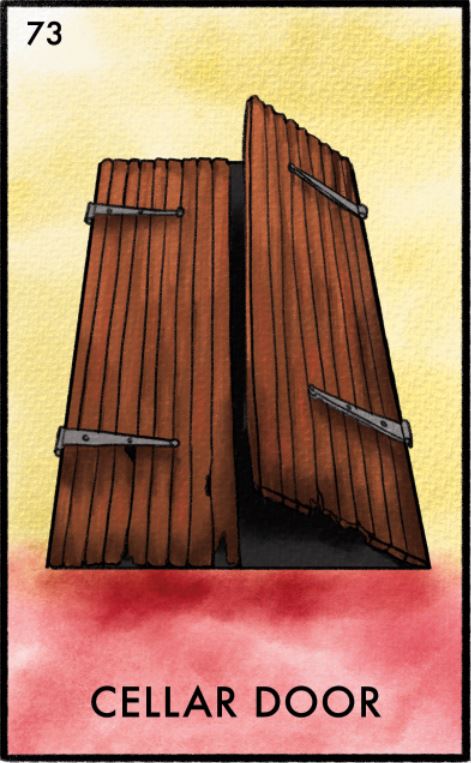
Cellar Door
Committed to showcasing the best undergraduate creative writing and art, Cellar Door began in 1973. The journal is published twice annually and now publishes additional content on its website.
Judges review submissions for the free print editions, published in the fall and spring semesters, and student winners receive prizes for their work.
Some notable Cellar Door judges have included poets Mark Strand and Jeffrey McDaniel; Max Steele ’46, author and former head of UNC’s creative writing program; and author Randall Kenan ’85.
“One thing I find interesting is that as you get older, you remember things from your youth and think it probably wasn’t that great,” said Suzanne Bolch ’88, a television writer for kids and family shows in Toronto and a former Cellar Door member. “The writing in Cellar Door I thought was great when I was in school, and looking back it truly was.”
Bolch recalled the moment her first poem was published, citing it among her favorite Cellar Door memories. “Seeing my poem within a group of authors that I looked up to and had been in awe of was very rewarding,” she said.
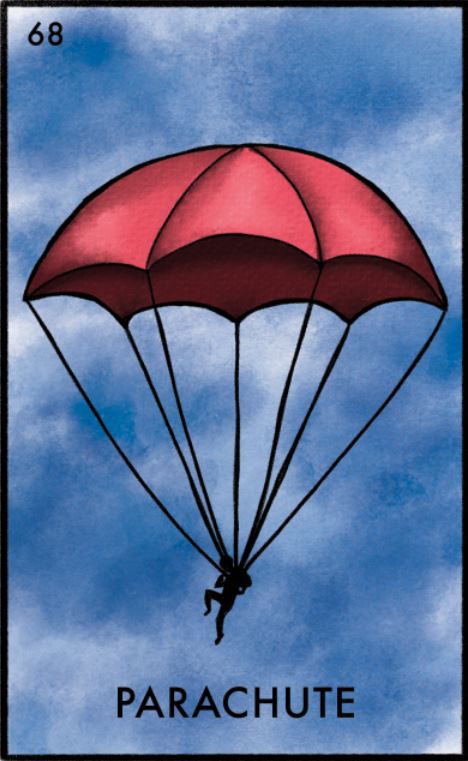
Parachute Club
The thrill-seeking and adventurous students of Carolina’s Parachute Club, founded in 1968 by Francis Hale III ’73 and Robert “Bob” Bolch ’73, not only jumped out of airplanes but also competed against other schools.
Club members paid for their equipment, though items were sometimes donated to them from Fort Bragg, now known as Fort Liberty. They would perform jumps at Raeford West Airport and at the Carolina Paracenter in Roanoke Rapids. Competing in individual and team jumps, members were judged on landing accuracy and style.
The club hosted the N.C. Collegiate and Open matches in Roanoke Rapids in 1973 and sent teams to the national championships in 1972 and 1973. There are no records of the group past the 1973 national championship.
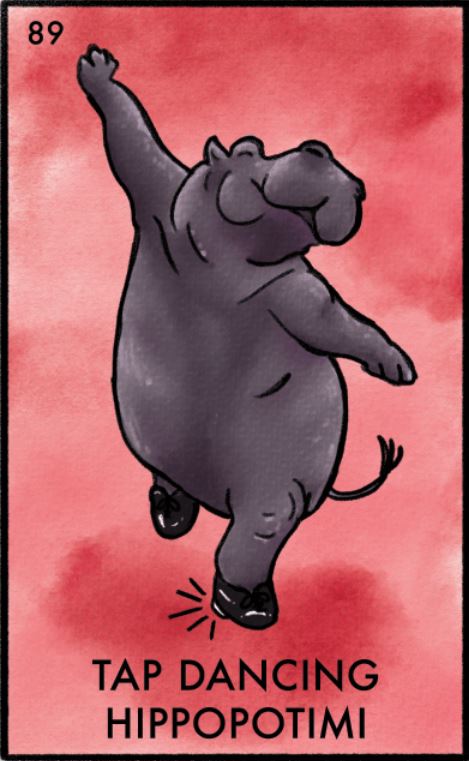
Society for the Appreciation of Tap Dancing Hippopotami
Though its name certainly doesn’t suggest it, the Society for the Appreciation of Tap Dancing Hippopotami was founded as a way for creative students to congregate and share ideas. And, no, before you ask, the club had absolutely nothing to do with tap dancing or hippos.
Stephanie Ahlschwede ’90, known to the group as the “high priestess,” started the society in 1989 after noticing what she considered an imbalance of representation in Carolina’s yearbook, the Yackety Yack. “One of the things that worried me was our yearbook seemed to only have pictures of Greek groups,” she said. “I was a part of student government and many other informal clubs that were doing good work that I decided should be recognized in the yearbook.”
Ahlschwede knew the group needed a name to be included, and the members wanted it to be creative and not easily forgotten. “You have to appreciate tap dancing hippos,” she said. “As well as appreciate the spelling of the plural form of hippopotamus.”
At some point, the group decided it needed officers, so Ahlschwede allowed members to choose their own offices and names. The society had offices such as “hobby horse trainer” or just simply “member.”
Mindy Dawn Friedman ’91 said the group aspired to be agents for change. “The only way you make true innovation is if you have the right people sitting around the table who don’t just have the seeds but have the comfort to speak their mind,” she said. “These people were some of the most amazing, bright and thoughtful folks who led with their heart.”
The group took positions on big issues around campus and concerning the town of Chapel Hill. Still, Friedman said, the primary goal of the group was to have the most fun picture in the Yackety Yack.
Ahlschwede and Friedman said the group presented joy and fun, making the group unthreatening and inviting. “That is what made it infectious in a positive way,” Friedman said.
The group no longer exists.
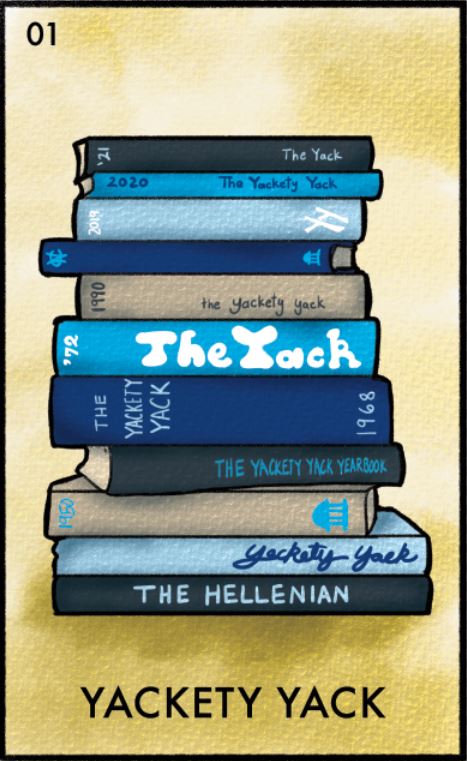
Yackety Yack
“Yackety Yack, Hooray, Hooray.” While you won’t hear that cheer in Kenan Stadium today, it was popular at the turn of the century — not the latest one, the one 100 years before that. Students adopted the first part of the cheer to rename the UNC yearbook, previously called The Hellenian, in 1901. The Yackety Yack showcased class photos, lists of organizations, action sports photos and random campus shots.
The yearbook continued publication until 2021.
The Yack, as it’s more commonly called, was popular until the 2010s — when the immediacy of sharing photos via social media usurped its usefulness.
Joyce Fitzpatrick ’76, the publication’s second female editor and the founder and president of Fitzpatrick Communications Inc. in Raleigh, compared being on the staff to working a full-time job. “There were nights I was in the office so long I had no idea of what time it was or how long I had been there,” said Fitzpatrick, also a former chair of the UNC Board of Visitors. “We had an office in the Union where we would sit and gather pictures and information to edit for the final copy. The yearbook is an important record of the year, so we worked to make it perfect.”
Fitzpatrick said one of her favorite memories was the day the staff got word of an impending streak — a 1970s phenomenon in which people ran through a public space naked, except, typically, for a ski mask and sneakers. “We were so excited to get the photos back, and they were very funny,” she said. “A few weeks later, I got a call from a father who tried to pay us for all the negatives because he was afraid his son was in them.”
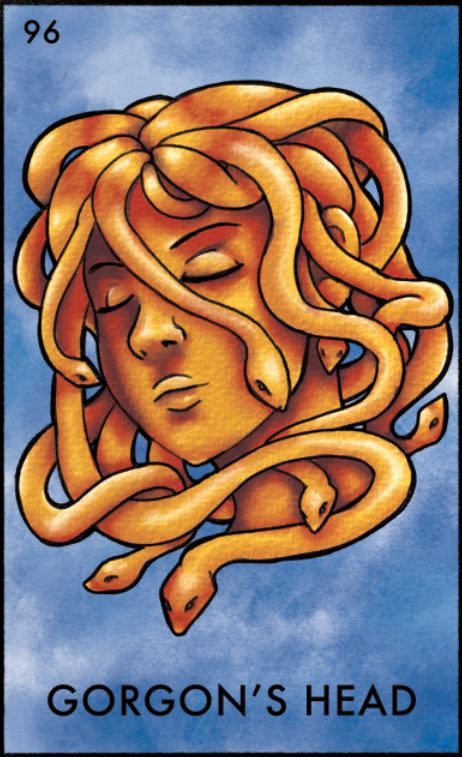
Order of the Gorgon’s Head
Imagine a club based on a Greek myth that includes monstrous sisters with coiling snakes for hair and officers named princeps, quaestors and scriptors. That’s the Order of the Gorgon’s Head. The secret society was founded in 1896 to promote friendship, goodwill and social fellowship among male juniors, seniors and those taking professional and postgraduate classes. Inductees are not allowed to be members of other societies.
The order was one of the two junior secret societies created at the end of the 1800s — the other was the Order of the Gimghoul. Both societies had written agreements, for unknown reasons, that they would not recruit freshmen and sophomores.
The Order of the Gorgon’s Head finds its inspiration in the myth of the Gorgons, three monstrous sisters, prominent in ancient Greek and Roman lore, who had coiling snakes for hair and whose gaze could turn people into stone. The most well-known is Medusa. The order has secret rituals based around the myth and holds its meetings at their lodge on East Franklin Street. Much like the Order of the Gimghoul, the activities of Order of the Gorgon’s Head are secret.
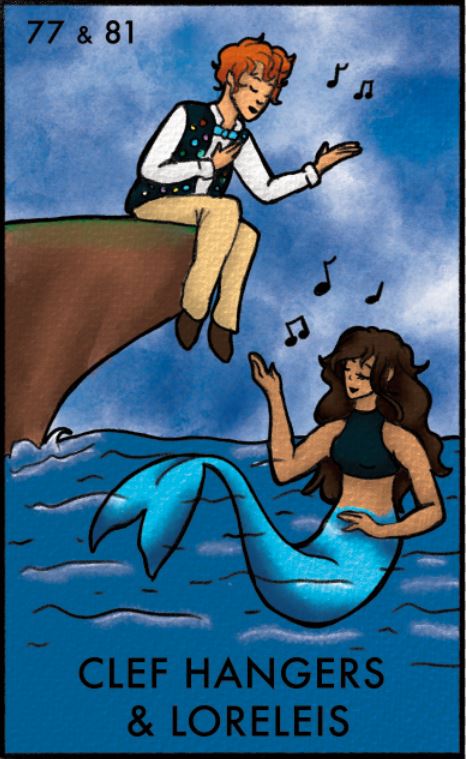
Clef Hangers and Loreleis
Since 1977, the Clef Hangers, a men’s a cappella group, have serenaded UNC’s newly graduated at Commencement with James Taylor’s “Carolina in my Mind.” Sponsored by Carolina Alumni, the Clefs are an essential part of Tar Heel tradition, from singing at the Old Well on the Last Day of Classes to a traditional Welcome Week Sunset Serenade to sorority bid days.
The Clefs host two concerts annually, one in the fall and one in the spring, and release a studio album every other year. They also give private performances.
The Clefs’ most notable engagements include performing for President Barack Obama at the White House and singing at Dean Smith’s funeral in the Smith Center.
The Loreleis, also sponsored by Carolina Alumni, is an all-female a cappella group founded in 1981. Their name is derived from a mythical siren who was said to dwell in the Rhine River in Germany and lead sailors to their deaths with its enchanting voice.
The Loreleis have performed worldwide, winning local and national acclaim. They’ve been featured on CBS Sunday Morning, NBC’s The Today Show and ABC’s Good Morning America. They’ve also performed at the White House, opened for Jay Leno twice and have won 18 Contemporary A Capella Recording Awards. The Loreleis also record a studio album every other year.
Thanks for reading the Carolina Alumni Review
Carolina Alumni members, sign in to continue reading.
Not yet a member? Become one today.
